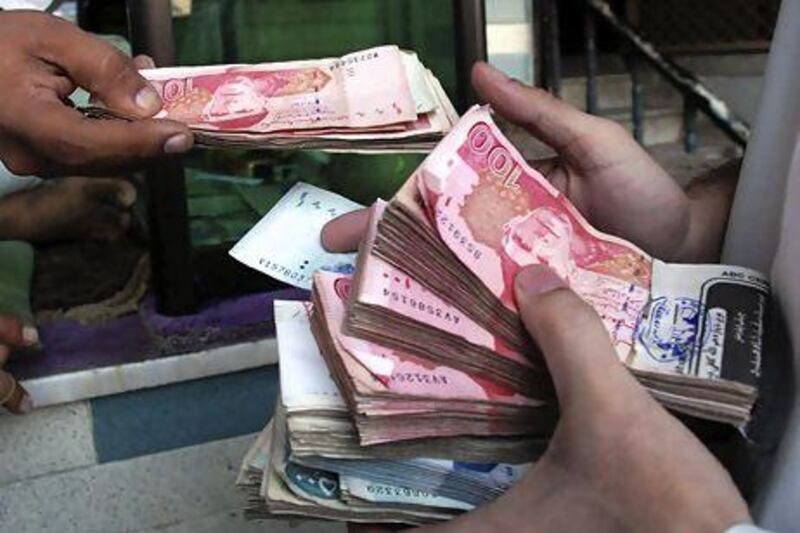Pakistan's worsening fiscal conditions are likely to persist in the next few months. The government is unlikely to be able to service external debt with foreign exchange reserves at dangerously low levels in its central bank. That would leave the nation at the mercy of international lenders.
As citizens gear up for general elections on Saturday, their government's finances are in dire straits indeed: a widening current account deficit and the dwindling forex reserves due to repayment of foreign loans could push Pakistan closer to a default within two months.
Unfortunately, the caretaker government of Mir Hazar Khan Khoso is doing nothing to avert the crisis. The new elected government after May 11 polls is supposed to shore up foreign exchange reserves by seeking a fresh loan from international lenders. There seems no choice left for the next government but to seek a foreign loan to avert a balance of payment crisis.
In November 2008, the country was forced to turn to the IMF for a US$11.3 billion bailout package after its forex reserves had shrunk by 75 per cent. The country received $7.8bn but it failed to get the remaining loan amount because of slippages in performance criteria, leading to suspension of the programme in May 2010.
The country has so far repaid $3.24bn to the IMF out of the $7.8bn loan. This month, the country will have to repay $533 million to the IMF. The repayment would squeeze the forex reserves held by the central bank, the State Bank of Pakistan.
In the week ending April 12, its forex reserves fell to a 10-year low of $6.64bn. This simply means that the country is hardly able to pay two-and-a-half-months of its import bill.
The country's current account deficit widened to $1.028bn at the end of the third quarter of the current fiscal year, which ends in June. A continued depletion of foreign currency reserves increases the risk of a deep economic crisis during a political transition.
The country received only $622m as foreign direct investment during nine months of fiscal 2012-13. The decline in foreign investment is attributed to terrorist attacks, a worsening energy crisis, bad governance and poor law and order. With foreign inflows having almost dried up, repayment of the IMF loan could further destabilise the already vulnerable exchange rate. The Pakistani rupee has lost 40 per cent of its value against the US dollar since March 2008.
The rupee is being traded at about 99 to a dollar in the open market and 98 to the dollar in the interbank market. The rupee is likely to sink to a new record in the next fiscal year on the pressure of macroeconomic indicators.
The possibility of the country defaulting on its foreign debt repayments over the next few months cannot be ruled out.
The Asian Development Bank, one of Pakistan's biggest lenders, has warned that the country would have to turn to the IMF again because it has reached a critical balance of payments predicament. Ironically, the country will be seeking a fresh loan from the IMF to retire the old loan.
But this time it will be harder for the country to get a bailout package from the IMF because it faces a lack of confidence from the international finance institutions. The IMF has already expressed a lack of trust in Pakistan by linking any future loan to broad political support for macroeconomic reforms and policy changes.
The IMF mission that visited Islamabad in January declared that the country would have to implement certain actions before making a formal request for any future arrangement.
The IMF has had a bad experience with the Pakistani government, which showed an inability to fully implement the economic reforms agreed under the 2008 IMF loan programme. The new programme is supposed to be tied with stricter conditions from the IMF.
Pakistan not only needs a new IMF loan to avert a crisis, it also needs a letter of comfort from the Washington-based lender about its economy. Multilateral creditors and donors such as the Asian Development Bank and the World Bank have linked their assistance to the country with the IMF clean chit.
Syed Fazl-e-Haider (www.syedfazlehaider.com) is a development analyst in Pakistan. He is the author of several books, including The Economic Development of Balochistan





